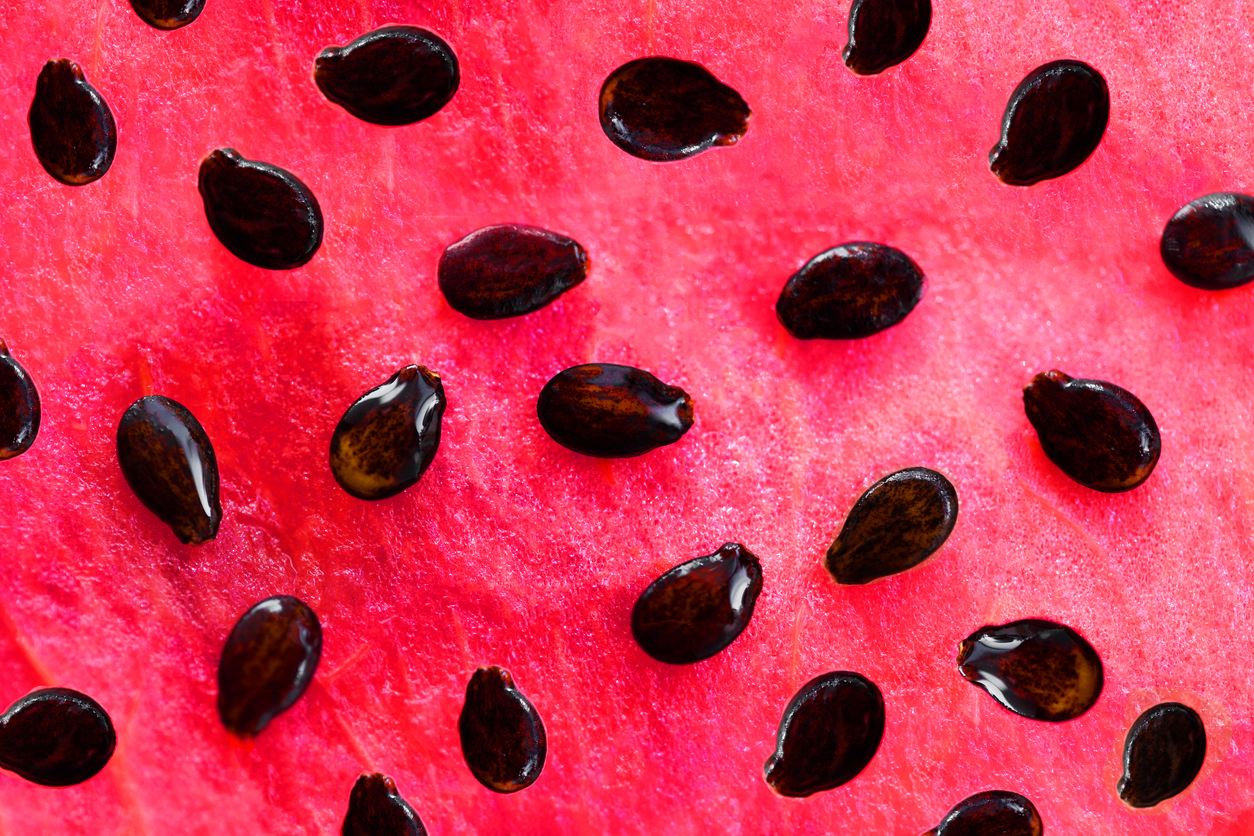
Researchers Reveal Genetic Basis of Watermelon Seed Size
April 13, 2022| |
Researchers at the Chinese Academy of Agricultural Sciences have revealed the genetic variation that determines the watermelon seed size based on a systematic study that explored the molecular basis of natural variation. The results are published in Horticulture Research.
Seed size is one of the vital agronomic traits of watermelon and various germplasm would come up with large variations in seed size. Thus, the researchers used Genome-Wide Association Study to investigate five seed size traits, including 100-seed weight, seed hilum length, seed length, seed width, and seed thickness in 197 watermelon accessions. They found that seed enlargement was an important feature during seed size domestication. The seed-consumed species Citrullus mucosospermus and the edible seed watermelon Citrullus lanatus were observed to contain significantly larger seeds than the other species. Analysis also showed that two genes that may be involved in abscisic acid metabolism (Cla97C05G104360 and Cla97C05G104380) have the potential to play a role in controlling watermelon seed size.
Read more findings in Horticulture Research and Xinhuanet.
| |
You might also like:
- Scientists Discover Ancient Melon Key in Breeding Disease-Resistant Watermelons
- Chinese Researchers Develop Herbicide Tolerant Watermelon
- CRISPR-Cas9-based Gene Knockout in Watermelon
Biotech Updates is a weekly newsletter of ISAAA, a not-for-profit organization. It is distributed for free to over 22,000 subscribers worldwide to inform them about the key developments in biosciences, especially in biotechnology. Your support will help us in our mission to feed the world with knowledge. You can help by donating as little as $10.
-
See more articles:
-
News from Around the World
- IPCC Report Reveals Agriculture can Halve Emissions by 2030; Help Climate Change Adaptation
- Trends on GM Foods Consumer Perception Help Identify Policy Recommendations
- ICRISAT Develops Iron-fortified Pearl Millet
- Nigeria Starts National Performance Trials for TELA Maize
- Genome Sequence of Forage Grass Now Available
- Brazil's Biotech Sugarcane Area to Double in 2022
- Shifting to Non-GM Feed Ingredients Less Beneficial to Environment, Producers and Consumers - Report
- Agri Experts Help Identify Behavioral Factors that Influence GM Tech Acceptance
-
Research Highlights
- Bacteria that Kills Fungus Affecting Sugarcane Yields Discovered
- Protein Discovery Reveals Mechanisms of Nitrogen Assimilation in Plants
- Researchers Reveal Genetic Basis of Watermelon Seed Size
-
Plant
- Novel Plant Breeding Techniques Boosts Cereal Production
-
Read the latest: - Biotech Updates (January 28, 2026)
- Gene Editing Supplement (January 28, 2026)
- Gene Drive Supplement (February 22, 2023)
-
Subscribe to BU: - Share
- Tweet

